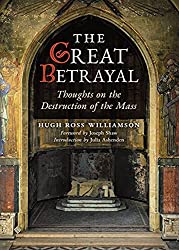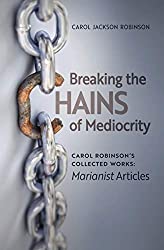2023 Update: What we have here is the first of a series of musings on Charles Taylor, begun many years ago, when this site started in 2009. For navigation purposes, we list and link the five parts here:
- A Secular Age – Charles Taylor’s Acceptable Loss?
- Catholic Tradition, Charles Taylor and Evelyn Waugh
- Catholic Tradition, Charles Taylor and Supernatural Mystery
- Catholic Tradition, Charles Taylor and Charles Krauthammer
- Catholic Tradition, Charles Taylor and Phillip Larkin
And now back to 2009 — Roger Buck

In the last entries I have been reviewing, after a fashion, Charles Taylor’s A Secular Age. As I say, the book furnishes an extraordinarily comprehensive and complex sociological history, regarding the transition from Catholic Western Civilisation to our atomised, contemporary society.
The book is brilliant on countless levels. I have even dared to ascribe a certain genius to it – no light words. Yet ultimately I am also saying that the book remains simplistic and lopsided. Clearly, from the perspective of faith, it lacks depth.
But there is yet another reason I cannot take Taylor completely seriously. It is to do with his treatment of the horror of modernity. For as I have also said – Taylor does much to evoke pre-modern horror. Traditionalists looking towards Christendom will find in this book a formidable catalogue of terror. cruelty depravity, stupidity in times past …
Is all this to suggest that our modern Godless and soulless civilisation is somehow an improvement? Reading Taylor, it is hard to escape the idea that he does indeed regard our modern era as the “least bad’ so far.
What to make of this? I suppose it will either satisfy or not. As for myself, I find it far from satisfying. Personally, I cannot help but find resonance with the traditional Catholic historian Warren H Carroll’s verdict of the last century as “the accursed century”: A catalogue of horror outstripping all previous catalogues …
But there is a curious aspect to Taylor’s treatment of our contemporary society. Personally it strikes me as a very much an approach from the proverbial Ivory Tower.
For there is indeed something truly towering about Taylor’s perspective – for better and worse. From a privileged and exalted position, he has taken in a vast sweeping panorama of the great literary and philosophical figures over our time. The erudition of the book astonishes. From just the twentieth century alone you will find sophisticated understanding of countless thinkers …
But herein is perhaps the problem. Taylor might be able to tell us a lot about Weber, Freud, Jung or literary elite circles such as Bloomsbury. He has far less to say, I think, about a crack cocaine addict living in the Bronx. Nor is there much about people slaving away 16 hour days in third world ‘sweatshops”. And there seems to me little indeed regarding the evident unsustainability of the apogee of our materialism.
It is striking for me then, that as Taylor turns to the problems of contemporary society, his language becomes muted. Thus he speaks of “dilemmas” of modernity. Other words surface such as ‘unease”, ‘malaise’, ‘discomfort’,’ennui”, “meaninglessness.”
Now again these are words from the Ivory Tower or so it seems to me. A privileged elite might feel a gnawing sense of hollowness to secularism – and perhaps little more.
Countless less-privileged victims of a social fabric in tatters may suffer much more acutely.
But in the end, one cannot measure suffering. One cannot QUANTIFY in units, the levels of horror of different epochs!
Each of us must come to our own admittedly subjective perspective. My own perspective is darker, I think, than that of A Secular Age.
And as my perspective has grown darker over the years – a gift of the Eucharist it seems to me – my position has moved from a more liberal one like Taylor’s to a far more socially conservative view.
It is often, perhaps usually that way. Personally I believe that the once liberal Joseph Ratzinger became ever more conservative as his heart was ripped-open by the darkness of the contemporary world.
The conservative and traditional Ratzinger has become the way he has, as he became ever more convinced of the terrible dangers of modernity in a way that I suspect Taylor is not convinced …
O Holy Father! I think of so many warnings you have given over the years! You have looked out over our modern world and you have said things like: “The population of an entirely planned and controlled society is going to be inexpressibly lonely.”
Inexpressibly lonely … Your heart it seems to me, Holy Father, is AWAKE. And even if you were not our Holy Father, I confess that your writings as Joseph Ratzinger, Catholic Theologian have an authority for me that Taylor’s do not.
For among many other things, they seem to me to have far more of acute feeling for the tragedy of modernity than A Secular Age …
Yes I do feel that often conservatives see levels of tragedy that liberals do not. Recently I was struck by something from Charles Krauthammer’s A Social Conservative Credo. Again, it contains a kind of insight one does not find so readily in A Secular Age:
Never in history have the purveyors of a degraded, almost totally uncensored, culture had direct, unmediated access to the mind of a society’s young. An adolescent plugged into a Walkman playing “gansta rap” represents a revolutionary social phenomenon: youthful consciousness almost literally hardwired to the most extreme and corrupting cultural influences.
Yes indeed such things are revolutionary. They have never existed before.
A memory is here as I write, from many years ago, when I was a far more liberal, upbeat New Ager. I was obliged to visit a terrible and unforgettable apartment.
On the walls of the apartment were truly hideous posters testifying to an extremely sick subculture. Perhaps worse there was music continuously in the background during this visit. What was this music? Thrash? Punk? I know not all the names …
But what I do know is that there was something very, very ugly in this apartment. And then there was a toddler. And I realised this child would be growing up surrounded by all of this. I had the impression this music went on relentlessly from morning till night. The little boy would absorb it all from his earliest years.
Now this memory stems from my pre-Christian years. I was not a Catholic and I did not think much then about the Darkness of the World, about Evil, about the Fall, about sin …
Still even in this upbeat New Age era of my life, I was not entirely asleep. For I looked around this apartment. I looked at the horrible images. I heard the vicious music. And I recall thinking to myself: Before the 1960’s, scarcely anything like this existed – at least for public consumption.
At least that is what I recall – that I saw then that something ugly had entered into the popular culture and was immersing submerging even our youngest children.
But even if I stirred from my slumber a little in that terrible apartment, it never occurred that Catholic conservatives such as the Holy Father might be right … Or that his heart might be far more open than many New Age teachers and liberal thinkers I adored.
To be continued …
Foreword for Monarchy by Roger Buck
Buying Books at Amazon Through These Links Gives Us a Commission. This Supports Our Apostolate. Thank You if You Can Help Us Like This!









Comments
comments are currently closed
5 responses to “Catholic Tradition, Charles Taylor and Charles Krauthammer”
I ‘ve dedicated a post to this today – hope you’re OK with this
this is the link
Catholic Tradition, Charles Taylor and the Final Triumph of the ……
I found your entry interesting do I’ve added a Trackback to it on my weblog :)…
Epsilon, I am very OK with this and thank you deeply.
It is very good to know that people appreciate what I am trying to say.
Moreover I am truly grateful for any links people can create to this site.
This project is facing certain difficulties at the present time – along with perhaps the fiercest determination I have ever felt to continue.
Replies to comments and new posts might be a little slower than before – but I mean what I say about determination to continue. Lourdes has changed my life …
In the meantime, comments such as yours and links to this site, certainly will help us continue.
And if any of you other friends, known or unknown, could easily give links to this site, that would be deeply appreciated.
In the same spirit I would like to say to say out loud that your own site here Epsilon has much – very much of heart, insight and tradition – to recommend it …
What Would Mitchum Do?…
In 1930, Evelyn Waugh, the British Catholic novelist (most famously of Brideshead Revisited), wrote: “It seems to me that in the present state of European history, the essential issue is no longer between Catholicism, on one side, and Protestantism, on…
[…] « Catholic Tradition, Charles Taylor and Evelyn Waugh Catholic Tradition, Charles Taylor and Charles Krauthammer » […]